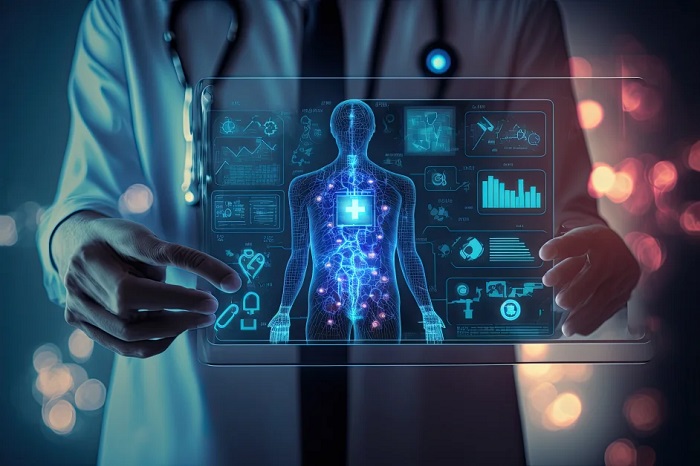Health
How Generative AI Is Transforming Patient Care and Easing Clinician Burnout

- Healthcare systems have started to implement generative AI in reducing working difficulties and instances of clinician burnout and in improving the delivery of care so it is customised to the patient.
- Listening tools and AI-powered documentation solutions are creating top-notch patient experiences while providing medical personnel with long-desired time to focus on personal care.
There seems to be a silent revolution in how healthcare is perceived, and it is being led by generative artificial intelligence. GenAI has turned into a major player in the future of medicine, from helping doctors spend more time with patients to making healthcare systems more efficient.
More than Just Tech: GenAI in Action
It’s not just a buzzword now. GenAI is currently being used in hospitals and clinics for operational efficiencies and better care delivery. For example, Highmark Health and Hackensack Meridian Health show the valuableness of this technology in healthcare.
Highmark Health, for instance, is implementing GenAI technology suitable for over 14,000 staff members. They are using Google Cloud’s Gemini and Vertex AI platforms to aid in just about everything, including software development, call centre optimisation, and prior authorisation approval.
One of the most well-regarded tools is called ambient listening, for it records conversations between doctors and patients (granted there is consent) and converts the interaction to clinical notes. This means doctors don’t have to take time off to type out later and can instead look beyond paperwork to what matters the most: the people in front of them.
A Thought Piece on Innovation
In tandem, to reimagine the way healthcare services operate for both patients and staff, Hackensack Meridian Health is employing GenAI in six core areas to increase its performance.
The initiative includes the following:
- Personalising care and communication to enable patients to better understand the treatment and for employees to receive required information all in no time.
- Automating administration tasks such as data entry and note-taking consequently helps clinical medical staff give patient care the focus it demands.
- For the reduction of burnout in the medical field, to allow the clinicians some space to breathe.
- Spotting any unhealthy sign before the real disease breaks upon us, using the smart data tools capable of identifying an acute element even when problems are in the making.
- Customising their mapping out of care, with due regard to the patient’s personal history, and not standard protocols.
- Rethinking the ways of delivering health care based on moving to flexible and accessible models of care.
Perks Through Fortress
Much like everywhere else, AI in healthcare comes with both potential and exceptions. The utility of tools that are designed to write up doctor’s notes, send alerts or messages to patients, or support medical decisions can be immensely high. However, the tools raise at least sufficient questions: Are they accurate in diagnosis and treatment? Is the patient safe in releasing data? Will the human connection be obliterated?
Some studies accentuate yet another fear — bias. Using previous data as their learning platform, AI systems may, at times, help humanity in observing the deep-rooted inequality prevalent across various divides in healthcare. Cogitatively, this matter certainly will call in for scrutiny to ensure responsible and fair usage of these tools.
Putting People First
The GenAI definitely has some great performance edges to make healthcare more efficient and giving. That said, making it an attempt to dominate human competence as doctors or nurses is futile. Instead, it should aim to provide them with improved resources — the kind that enable them to offer care to the patient with more effectiveness and are rewarded with self-care.
As hospitals and clinics begin to try to apply GenAI for their needs, it is important to never allow technology to overshadow the human touch in healthcare at any time. In the end, the aim in the healthcare system remains to assist people in some way, be it care giving or receiving.
What Lies Ahead
The transition to Generation AI in healthcare is still in its initial phases, but with the best of omens. The underway changes are making substantial differences of genuine benefit, as shorter procedures and more accurate diagnoses have begun marking the beginning of this journey.
But as with any significant change, this transformation must be implemented cautiously, together with several innovative practices. Healthcare providers must design such systems to be ethical, transparent, and inclusive so that new technology is designed toward equity.
In the end, all these considerations centre around making healthcare more improved, intelligent, and perspicuous.



















































